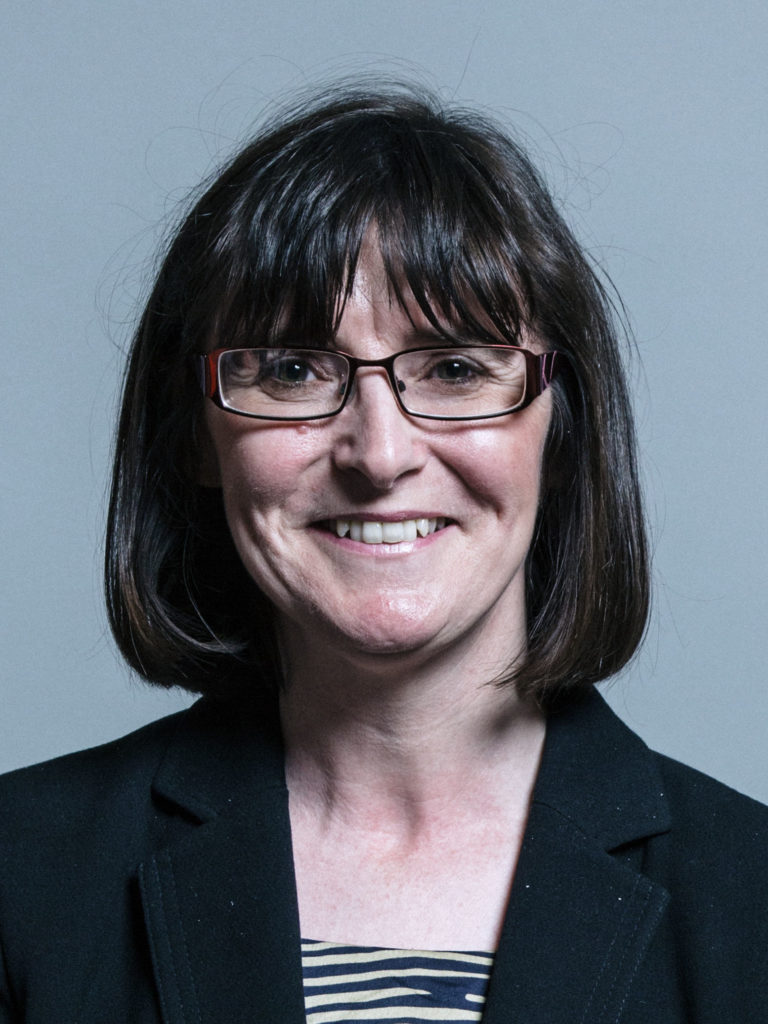Patricia Gibson – 2023 Speech on Bee-killing Pesticides in Agriculture
The speech made by Patricia Gibson, the SNP MP for North Ayrshire and Arran, in Westminster Hall, the House of Commons on 1 February 2023.
I am pleased to participate in the debate, and I thank the hon. Member for Plymouth, Sutton and Devonport (Luke Pollard) for comprehensively setting out the issue before us—the use of bee-killing pesticides in our agriculture.
The issue matters very much to my constituents, and I know it matters to constituents across the UK, because we all receive large amounts of correspondence about it. The reason for that concern is that bees play a crucial part in our ecosystem; we must do all we can to protect them from the detrimental impacts of environmental alterations and climate change.
The International Union for Conservation of Nature list shows that as many as 24% of Europe’s bumble bee species are now threatened with extinction, despite being worth a staggering £690 million per year to the UK economy. Bees are vital to our agriculture. One out of every three mouthfuls of food we eat exists because of pollination. Bees pollinate an array of crops, including apples, peas, courgettes, pumpkins, tomatoes, strawberries and raspberries. If we lose bees and other pollinators, growing many types of food would be extremely challenging. Our diets would suffer tremendously. The variety of food available would diminish and the cost of certain products would surge. Many argue that pollination provides one of the clearest examples of how our disregard for the health of the environment threatens our very survival.
Since 1900, the UK has lost 13 species of bee, and a further 35 are considered to be under threat of extinction, not least because of toxic pesticides, which we are talking about today, and climate change. No species of bee is protected by law. The contribution of honey bees to nature and food products is significant. As we have heard from a number of Members, up to three quarters of crop species are pollinated by bees and other pollinators, so bees are the ultimate symbol of a healthy environment in terms of our climate, our food security and our natural world. Bees could not be a more important factor in those areas.
When we look at what is happening in Scotland and what is happening in England, this is again a tale of two Governments. The Scottish Government launched its “Pollinator Strategy for Scotland 2017-2027” to make Scotland a more pollinator-friendly and sustainable place by protecting indigenous bee and butterfly populations. The strategy sets out how to make Scotland a place where pollinators can thrive and how those objectives can be achieved. Importantly, it raises public awareness about the value of Scotland’s pollinating insects and the regulation of non-native species.
While that is going on, we have a UK Government who, as we have heard today, have no real sense of urgency about this important matter. The hon. Member for Plymouth, Sutton and Devonport pointed out that the UK Government have retained the pesticide, along with other neonicotinoids, banned in the EU in 2013, using the EU temporary emergency exemption. Measures in the EU to protect pollinators, including bees, are in place, but the UK opted out of them. I echo the point made by the hon. Member for North Norfolk (Duncan Baker), who is no longer in his place, about the impact of glyphosate and the need to address that issue.
For the third year in a row, the Government have authorised the continued use of thiamethoxam—I hope I pronounced that properly. The European Court has ruled against its emergency use, because it is known to be lethal to bees, wasps and other pollinators. It poses a danger not just to wild bee colonies, but to humans, as it is linked to a wide range of health challenges.
It was not so long ago that the former Environment Secretary, the right hon. Member for Surrey Heath (Michael Gove), declared:
“We cannot afford to put our pollinator populations at risk”—
yet here we are. Members have reminded us that one teaspoon of pesticide is enough to kill 1.25 billion bees. The sensible way forward, in the face of the facts that we have heard today, is surely a total ban on bee-killing pesticides.
Many people, including SNP Members, encouraged the UK Government to make the Environment Act 2021 stronger by following Scotland’s example in areas such as air pollution, outlawing harmful pesticides and independent oversight of environmental protection, but sadly, that was to no avail. The reality is that legal requirements set out in the Act to halt species decline by 2030 will be as written on water if the UK Government do not step up and protect England’s natural environment and preserve its biodiversity. This matters very much in Scotland, even though it is a matter for the UK Government, because bees do not recognise borders, so bees across the rest of the UK are potentially harmed by what is going on.
Margaret Ferrier
Will the hon. Member give way?
Patricia Gibson
I will just finish this point. It is important that the Government prioritise the environment and protect farmers in international deals, because improving trade is one thing, but our natural environment must not be jeopardised by poisonous chemicals that result in the death of invaluable pollinators. There must be no regression on environmental standards and protections. I urge the Minister to follow the direction and example of both the Scottish Government and the EU in banning pesticides and protecting pollinators. During the Brexit debate, many of us warned of a divergence in standards between the UK and the EU over time, leading to—as everybody feared—the lowering of standards in the UK over a range of areas. We were told that that would not happen, that it was nonsense and that the UK would be liberated to make even greater progress, but today we see our fears about protecting bees coming true.
Margaret Ferrier
As the hon. Member mentioned, we have some good initiatives in Scotland for bee protection, such as the Cambuslang apiary project in my constituency. Does she agree that the project does incredible conservation work for bee pollination and populations?
Patricia Gibson
Absolutely. Local initiatives like that must be applauded and supported, but we need a lead from the UK Government on the level of pesticides and pesticide use, so that we can support the very important work that bees do on our behalf, which many of us probably take for granted.
That brings me beautifully to my next point because, although many of us might take the work that bees do for granted, we have to remember the impact that they have on our crop production. We do not want to find ourselves in future in the same position as some fruit farmers in China, where wild bees have been eradicated by excessive pesticide use and the lack of natural habitats. That has forced farmers to hand-pollinate their trees, carrying pots and paintbrushes to individually pollinate every flower. It is simply not possible to hand-pollinate every crop that we want, but it shows the kind of nightmare scenario that we could end up in, and the impact that that would have on the food that we eat and on our survival.
This issue becomes more pressing with every passing day, as our bee numbers continue to diminish. I hope, when the Minister gets to his feet, that he will agree that it is indeed time for his Government to get busy and start saving bees, and to ban noenicitinoid pesticides before it is too late. As he has heard today, his Government need to follow the signs and remember bees and the Government’s environment improvement plan. Let me end by saying: the Government need to get themselves into a hive of activity and save our bees.


